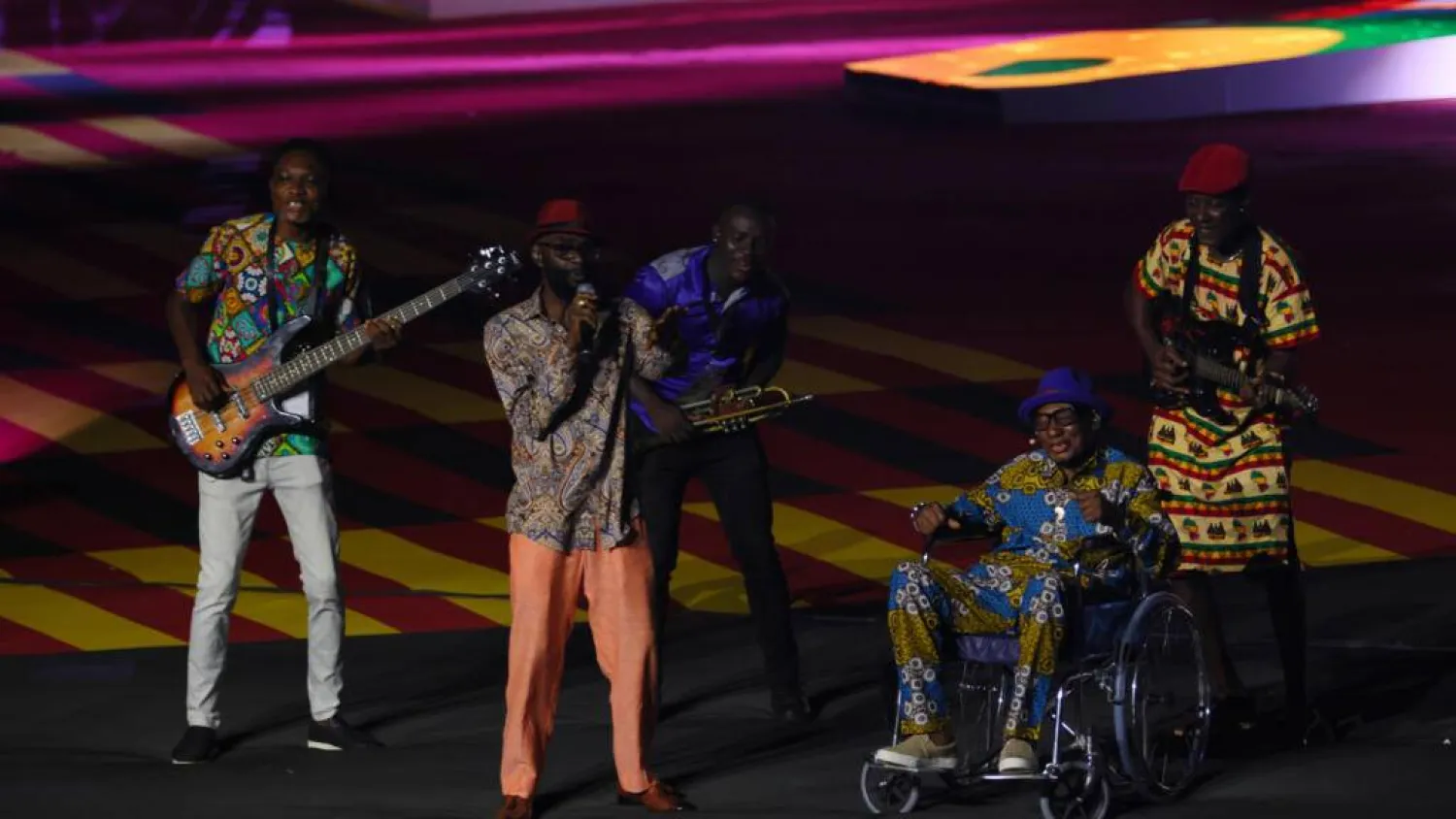Ten thousand shows throughout 54 years, and each year has a special story of pain and joy. From a motionless world to a space of creativity, freedom, and challenge of traditions, a beautiful melody originated from the Baalbeck valley.
Caracalla Dance Theater is as many believe a ‘Brand’ that was born out of struggles, from under the rubble and death of a civil war that hit Lebanon in 1975, and almost killed the seven-year-old dream of Abdel-Halim Caracalla who was used to deal with hardships and strict traditions.
Year after year, the grumpy face disappeared, and the group Caracalla has been representing the Arab world in international events since the 1980s. With patience, hope, and support, the group marked its unique position in the world of stardom.
This is how the interview with Ivan Caracalla, the group’s director, went from the beginning. “The 1975 war and what came after it was a true turning point with many benefits for the group, which almost ended when its members were targeted in a shooting incident. But the savior was Abdel-Halim Caracalla’s belief in his project, which faced many challenges since its debut.”
Saudi theater
About Caracalla Dance Theater’s agreement with the Theater and Performing Arts Commission, Ivan explained that “it’s a long-term artistic project based on the Saudi traditions, heritage, and culture. It has different directions including the connection between folklore and theater, and academies’ establishment.”
“Within five years, there will be a Saudi dance group that performs musical plays and makes its own theatrical works,” he said in response to a question.
When asked about transforming the poetry collections of Saudi poets into plays, he said: “It is a possibility. It is a plan that should be discussed and set in collaboration with the culture ministry which plays a key role and has major goals. But working with old stories ensure a freer imagination without affecting the content.”
Future plan
About the future plans, Ivan Caracalla revealed that they are reviewing and preparing some stories including “The Queen of Sheba”. We are also preparing to take part in a cultural festival in China in a play titled ‘On The Silk Road’.” Do you see the group partaking in an open show that hosts thousands of spectators? “It’s a beautiful idea. Actually, we were asked to perform a free, outdoor show in China for the audience,” he replied.
The funding problematic
“We are facing a serious funding problem especially in Lebanon because the country is suffering.” Those are the words that Ivan used to speak about the lack of resources and challenges the group is facing. He also highlighted the moral support they found in many Arab and western capitals, without giving any details about the group’s needs for survival. |The group has over 60 members who live in Lebanon, and Caracalla is responsible for their private and professional lives. We also have the finances of our private theater. Here, I must stop and thank the Saudi culture ministry which has embraced the Caracalla Theater and set future plans with it,” he said.
Jamil and Bouthayna
Why this play? “The Royal Commission for AlUla requested a work inspired by the city that could be performed on the Maraya Theater. The best and most suitable choice was the story of Jamil and Bouthayna and their pure love to remind the younger generations of this couple, whose story was born in Wadi al-Qura, and became a part of the Saudi and Arabic culture and heritage,” he explained.
“It was a huge challenge, in fact, as it is a story that people knew and told for thousands of years. The theater should be like a history book, it should not forge history, but rather use it to build the play. The biggest inspiration in this story was the poetry of Jamil,” he continued. “The research about that era and the outfits worn during it were few, but the poetry of Jamil was a starting point that gave us more information about the region, Bouthayna, the heritage, and community at the time,” he noted.
Jamil and the world
About its shows around the world, Ivan said “Jamil and Bouthayna” will be performed in European capitals, a work that requires collaboration with culture ministries and theaters there, noting that theater is a cultural destination, and not only a place for dancing and entertainment. “All the dancers in our group are professionals and our training never stops.”
Variety of rhythms
Not all the rhythms in Jamil and Bouthayna were from the Arabian Peninsula, the director noted. “We used some local music and rhythms and incorporated them in the distribution, which combines western and eastern music. Caracalla’s favorite hobby is blending the east and the west,” he said. “The theater was built with western techniques and eastern decors. The ‘Jamil and Bouthayna’ play aims at boasting the Arabic traditions and manners, and highlighting this legacy in its human and social aspects.”
The dream
When Ivan talked about the dream, he stopped for few seconds and took a deep breath, then said: “It is a tough question. My dream is the continuity of Caracalla even after my death, seeing it become a cultural model in the Arabic region whether our family survived or not.”









